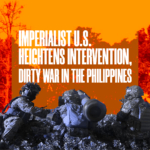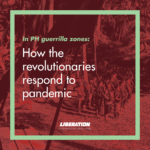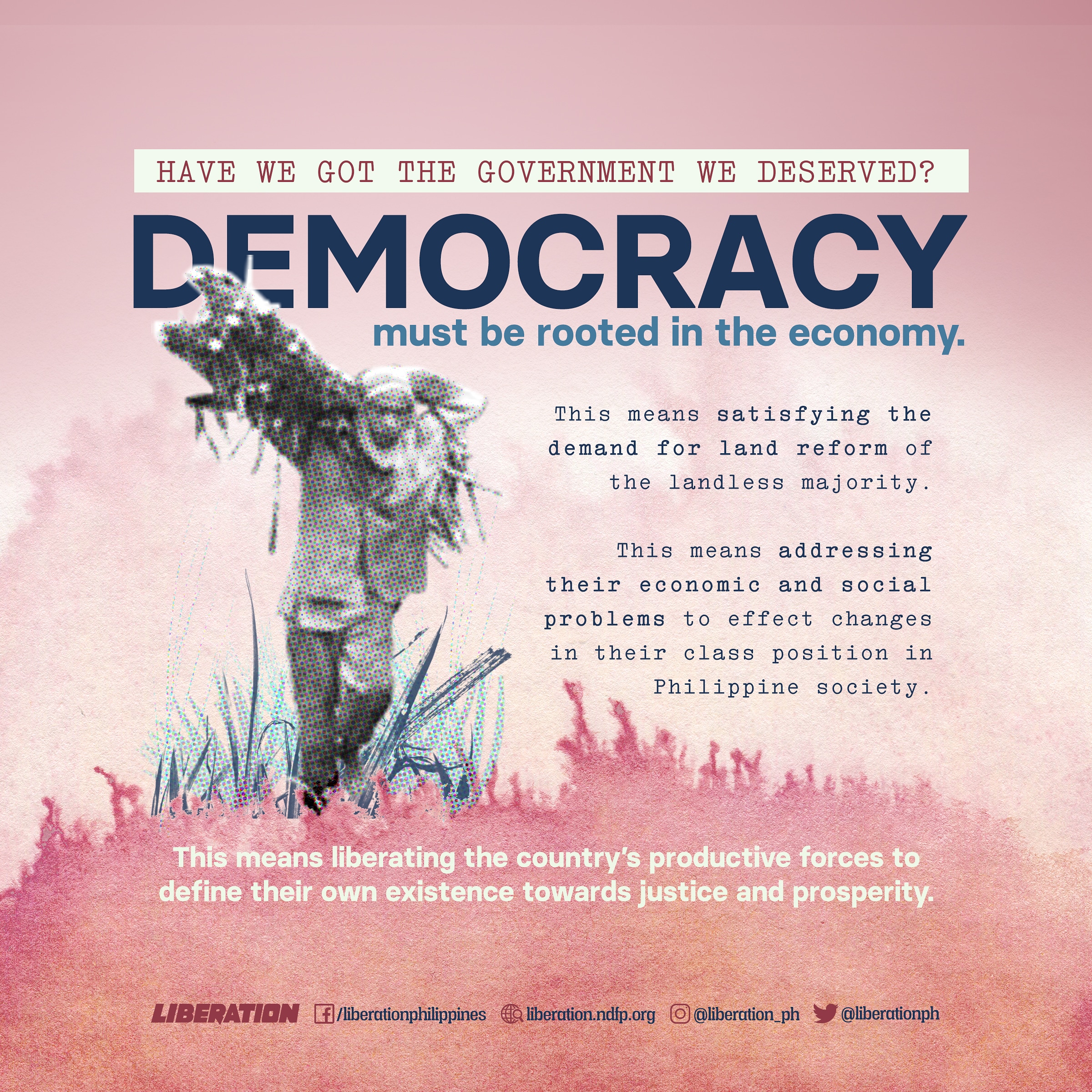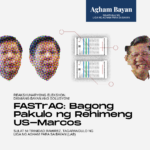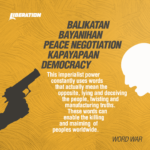DUTERTE’S REAL LEGACY: Criminal Neglect at Facing Epidemics and Disasters
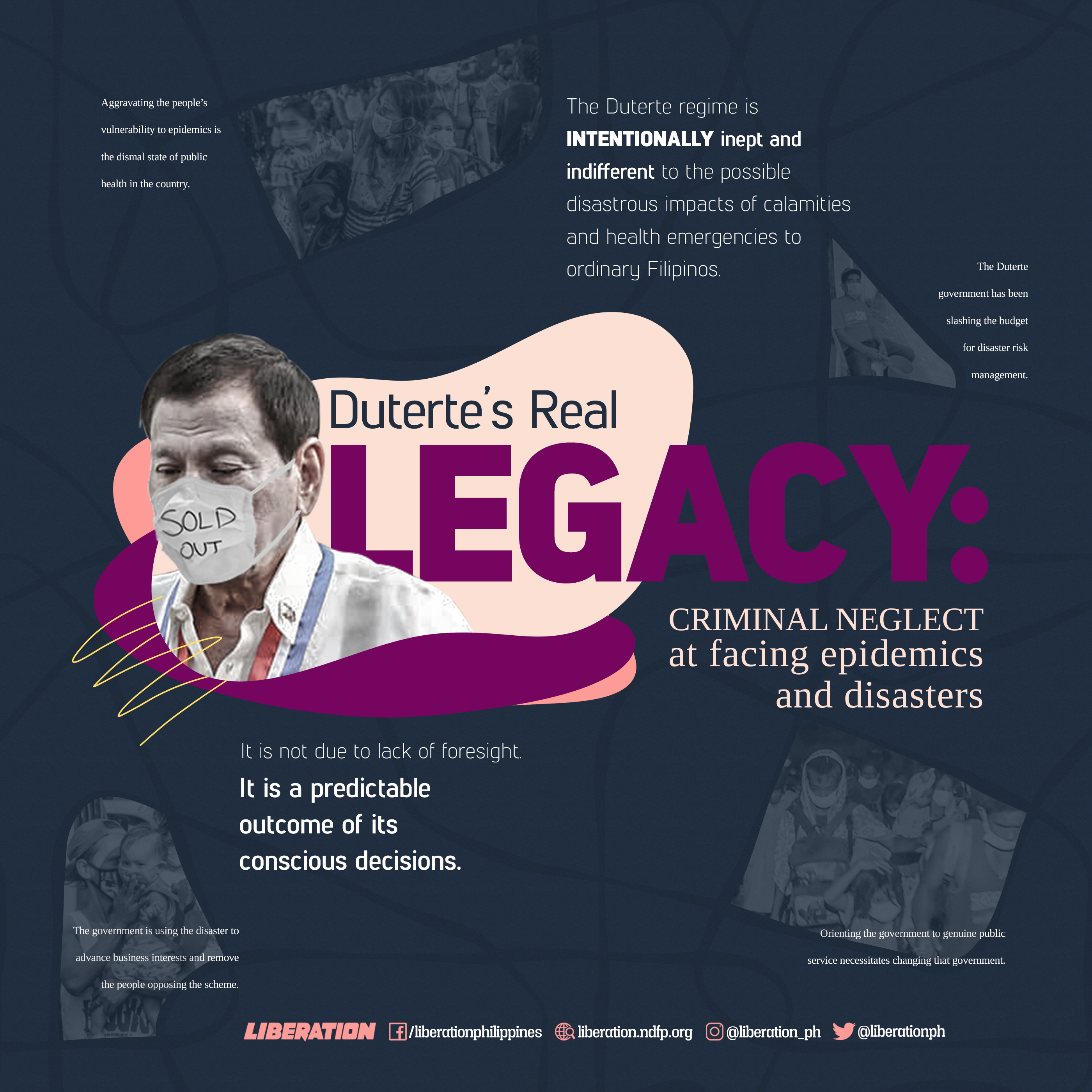
Pee on Taal volcano, eat ash fall, and slap the (novel corona) virus—these were Pres. Duterte’s responses to the current disasters that Filipinos confront today.
The Taal volcano eruption and the novel corona virus epidemic highlight the ineptness and indifference of the Duterte regime at serving the needs and interests of the Filipino people. His regime is accountable for its negligence and ill-preparedness, the Communist Party of the Philippines (CPP) said in a statement on February 2020.
The Duterte government is aware that calamities and epidemics regularly visit the Philippines.
These would not have automatically turned to disasters if the government took steps to prepare for, and mitigate, disasters; and if the government has been addressing the people’s vulnerabilities to calamities and health emergencies such as the problem of overcrowded urban poor communities, malnutrition, lack of access to clean water and sanitation, and lack of access to free or affordable health care.
Disasters exacerbate the poor people’s insecurities that stem from these vulnerabilities.
Instead, the Philippine government has mostly been doing the opposite. The Duterte regime is INTENTIONALLY inept and indifferent to the possible disastrous impacts of calamities and health emergencies to ordinary Filipinos. It is not due to lack of foresight. It is a predictable outcome of its conscious decisions. It opts to excel more in bowing to its US and Chinese imperialist masters, for its bureaucrat capitalist gains, at the expense of the Filipino people’s lives.
It is plain to see in the series of decisions they have taken in the face of the latest health emergency and disaster to hit our shores.
“Afraid of China’s admonition, Duterte has opted to secure his selfish interests over the people’s welfare,” the CPP said. Duterte acceded to a travel ban from the virus’ country of origin only after widespread condemnation of his inaction, after the World Health Organization declared a Public Health Emergency and various governments have already taken drastic measures to limit the spread of the virus.
SLASHED BUDGET, WEAK HEALTH CARE SYSTEM FOR THE POOR
Aggravating the people’s vulnerability to epidemics is the dismal state of public health in the country. “Having decreased the health budget year upon year since taking power, the Duterte regime failed to fund enough medical experts and equipment to determine and treat highly contagious diseases,” the CPP said.
The Duterte regime has continued the neoliberal reforms turning health care into a for-profit operation.
The poor majority are increasingly deprived of free public health services but, looking at the shiny private or public hospitals boosted by Philhealth, the Health Secretary claimed we are “not a country with a weak health care system.”
Despite the dismal state of public health, he also said we’re not among the “really poor” countries the World Health Organization worried about in coping with the global health emergency.
Such illusionary denial is easily shattered by facts. The country’s latest doctor-to-patient ratio remains too low at 0.3 per 10,000. Research thinktank Ibon said this is far below the World Health Organization’s (WHO) recommended ratio of 1-1.5 doctors per 1,000 population.
In the Philippines, the most vulnerable from the corona virus are the urban poor communities and rural areas under-served or not being reached by health services, and are also scarcely informed about the virus, said the Malayang Kilusan ng Bagong Kababaihan-Bikol (MAKIBAKA, an allied organization of the National Democratic Front of the Philippines) said in a statement. In Bicol, as it is in other regions, there are too few public hospitals and most of it are in the cities, the underground women’s group said. “Often, these hospitals lack equipment or the clinics in the barrio lack personnel and don’t open everyday.”
The Duterte government’s conscious indifference to peoples’ welfare shows most starkly in the national budget.
Duterte means business in waging war against the people, conducting surveillance and deploying committees to gag critics and establish military control of civilian agencies. It allocated billions of funds for these.
It has put the people’s money where its war-mongering mouth is. It has done the opposite toward social services.
While plonking billions for military rampages that victimized mostly peasants and indigenous peoples, it has been excising funds direly needed for health emergencies and disaster preparedness.
It slashed by more than half (56 percent) the Department of Health’s (DOH) budget for epidemiology and disease surveillance program, allocating it just P115.5 million compared to P263 million last year. Its health emergency program is at 830 million pesos, or just PhP8 for every Filipino.
If the Duterte government had pursued effective emergency plans and crisis strategies, our scientists and facilities are “more than capable of performing procedures for faster and more sustainable dealing with health emergencies,” the patriotic scientists’ group Agham said in a statement.
Filipino diagnostic capabilities have a lot of room for improvement but it’s severely hampered by the all-time-low budget given the Department of Science and Technology’s (DOST). Bayan Muna Rep. Ferdie Gaite said the low DOST budget means little to no funding for potential research in genomics that could have helped improve our diagnostic capabilities.
The decreasing share for health in the national government budget shows the low priority given to this, said research group IBON. Even the crucial program meant to ensure we would have a wide range of human health resources including doctors, nurses, midwives, dentists, allied health professions, community health workers, social health workers and other health care providers and management and support personnel has been losing funding. IBON noted that the budget for the health department’s Health Systems Strengthening Program was cut by Php6.6 billion from Php25.9 billion to Php19.3 billion.
How would an underfunded, undermanned and ill-equipped workforce address public health challenges such as the Coronavirus Disease (COVID-19)?
The same criminal neglect in past and future natural and man-made disaster has been repeatedly pointed out in the national budget. A puppet government intent to survive or prolong his or her term while amassing bureaucrat loot from projects with imperialists just can’t seem to be bothered to correct this historical trend.
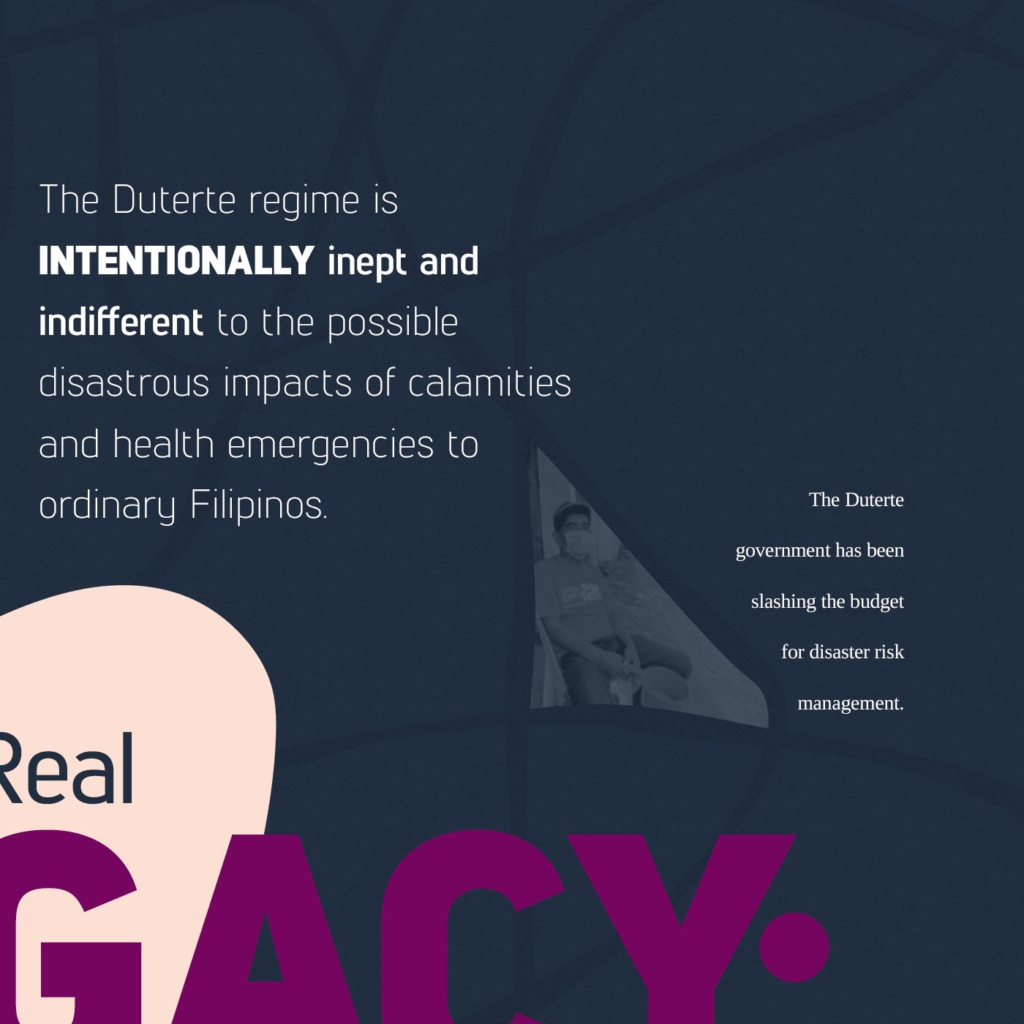 SLASHED BUDGET, ILL-PREPARED FOR DISASTERS
SLASHED BUDGET, ILL-PREPARED FOR DISASTERS
The Philippines is disaster-prone. It is in the Pacific Ring of Fire. It has active volcanoes. It has long been ripe for the Big One temblor. It regularly gets visited by typhoons. Portions of the archipelago are at risk of sinking from the predicted higher searise. In response, defying logic and this annual tally of worsening calamities, the Duterte government has been slashing the budget for disaster risk management. The Taal volcanic eruption illustrates the disastrous bent of puppet governments such as Duterte’s.
As hundreds of thousands of Filipinos reel with little to no rehabilitation yet in sight following the Taal Volcano eruption last January 12, and before that, the earthquakes and typhoons late last year, the Duterte regime’s lack of genuine concern for the Filipino people is starkly revealed.
Never mind the photo ops of government soldiers handing out relief packs (donated by the private sector) or forcing people to vacate their endangered homes (a core strength of the state troops lies in driving people out of their homes). Never mind the DILG Secretary and former Armed Forces Chief Eduardo Año asking for donations. Filipinos voluntarily give that and have in fact been doing that even without Año asking for it. The questions that reverberated following his calls for donations (“Why can’t the government take care of that when the Filipinos have been taxed to death?,” “Why do you spend so much for this and that but allocate a pittance for disasters?”), and the “shocked” responses by some lawmakers at “revelations” that they themselves slashed P4-billion from the already whittled down calamity fund for 2020. All these point to a government that shamelessly institutionalizes criminal neglect of its citizens’ needs.
That it has been caught flat-footed with meager budget for new calamities only shows it has not in the first place really thought of the people’s welfare.
Of the reduced P16 billion budget for calamity funds in 2020, only P7.5 billion can go to new disasters. The rest were already earmarked for relief and rehab of victims of earthquakes and typhoons from late last year and the still unimplemented Marawi rehabilitation. Even traditional politicians note that P7.5 billion is not enough for the more than 200,000 people deprived of livelihood and homes because of Taal’s eruption—this is just one calamity, and 2020 has just started.
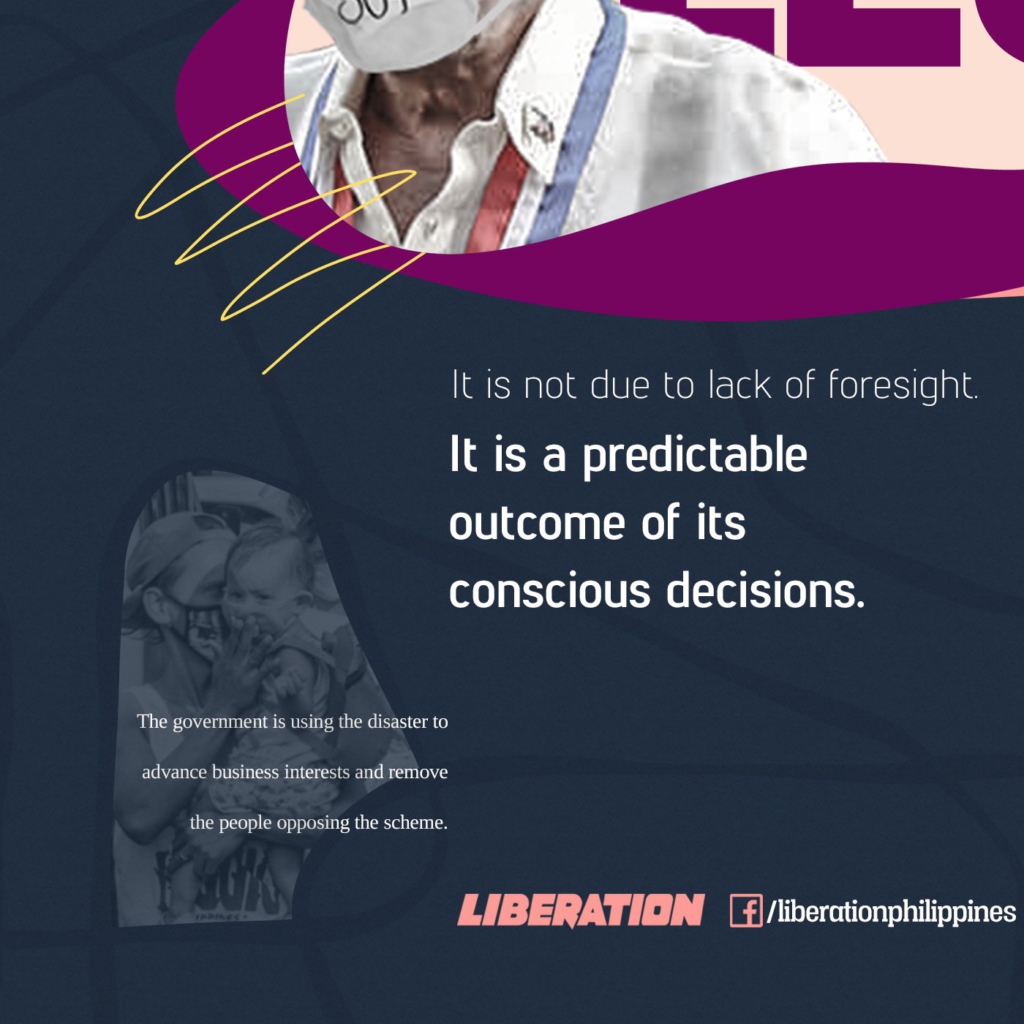 BUT THERE’S MONEY IN DISASTERS
BUT THERE’S MONEY IN DISASTERS
Worse than negligence and ineptness, the government is using the disaster to advance business interests and remove the people opposing the scheme. There is a threat, aired by the DILG, that in the guise of ‘rehabilitation,’ they might permanently drive away the people who used to live around the Taal Lake.
“Batangueños must be vigilant to not allow this rehabilitation effort to turn into a profiteering scheme—the 2017-2022 CALABARZON Regional Development Plan has initially proposed that Taal Lake can serve as an ecotourism and leisure zone to maximize its tourism potentials and stimulate the development of new scenic lakeside communities,” Bagong Alyansang Makabayan in Southern Tagalog said.
Against the DILG’s proposed permanent ban of human settlement in Taal Volcano’s 14-km radius danger zone, the group calls on the public and scientific community to conduct first a comprehensive investigation and environmental impact assessment.
Duterte’s promised “aid” involves P25,000 loans, an “uncalled for” offer at this time, said Agham. Batangas’ economy is mostly driven by agriculture.
Rather than offer loans to the disaster victims, the government must fully support the farmers and the fisherfolk affected by the calamity, Agham reasoned.
The National Democratic Front in Southern Tagalog (NDFP-ST) urges the people to also be on guard against “corrupt politicians and officials of the reactionary government who will take advantage of the calamity to pocket millions of calamity funds earmarked for the people.”
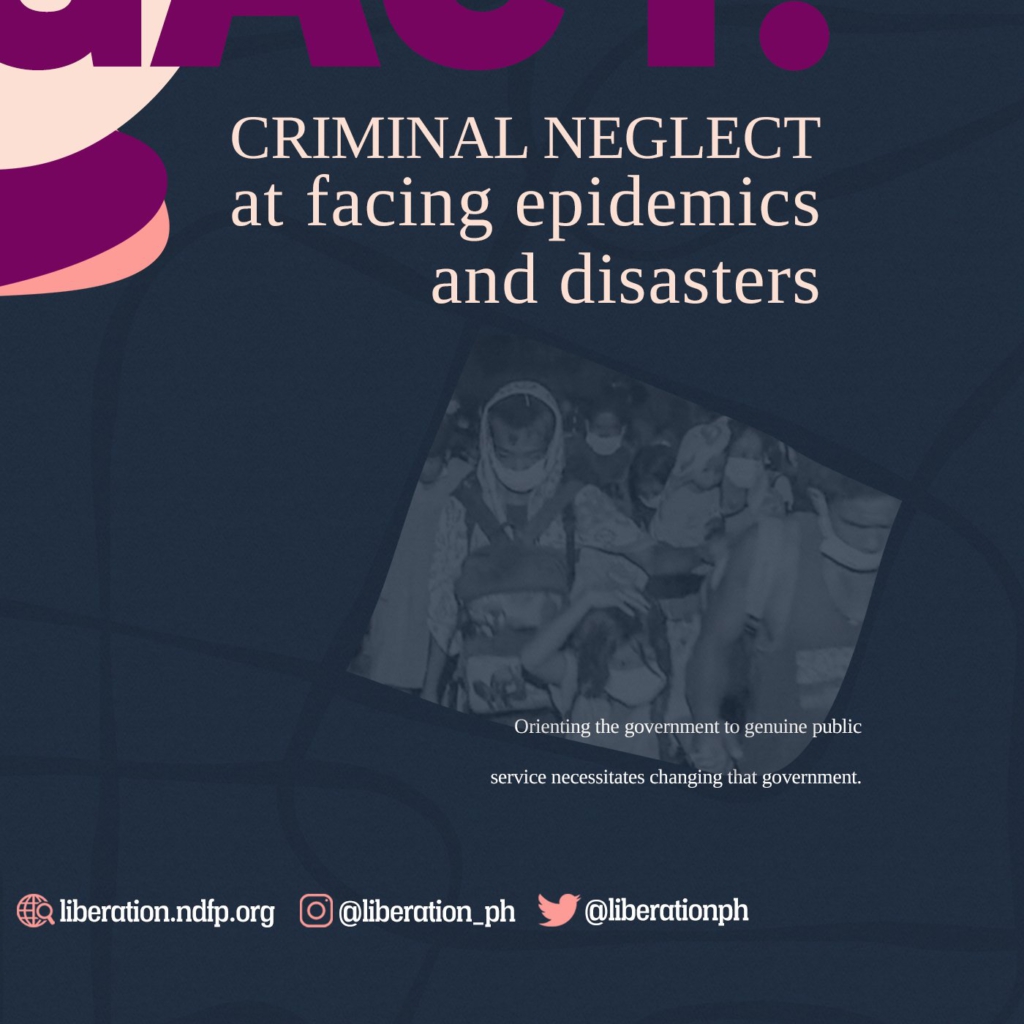 OUSTING DUTERTE A PATRIOTIC DUTY, BUILDING THE PEOPLE’S DEMOCRATIC GOVERNMENT A NECESSITY
OUSTING DUTERTE A PATRIOTIC DUTY, BUILDING THE PEOPLE’S DEMOCRATIC GOVERNMENT A NECESSITY
Today the Duterte regime not only has to answer for its neglect of the country’s health programs and disaster risk preparation and mitigation, it must account for its continuing attacks on the people. Even under calamities, the Duterte regime continues to malign progressive peoples’ organizations as they take it upon themselves to mobilize for the disaster survivors’ relief and rehabilitation.
The youth group Anakbayan’s Tulong Kabataan for instance has successfully mobilized the youth for relief and rehabilitation efforts. But last January 20, they flagged the Duterte’s P36-billion funded National Task Force-End Local Communist Armed Conflict (NTF-ELCAC) whose Facebook and Twitter pages red-tagged Anakbayan. The youth group said it’s a “desperate and pathetic move to attack our organization and to distract the people from Duterte’s criminal negligence over the Taal eruption.”
Right from the first days of volcanic eruption the NDFP has mobilized people to send help. It provided immediate aid and relief and muscle in the organized move to safer locations.
While praising the Filipinos’ warmhearted and fast bayanihan, the NDF called on the people to demand greater funds for relief and rehabilitation for those affected by Taal’s eruption.
“Even more so now, there is the pressing need for the people in the regions visited by calamities to unite, mobilize and struggle for calls such as long-term moratorium in farmers’ paying of land rent to their landlord, or their yearly payment for certificate of land ownership (CLOA) under the bogus agrarian reform of the fascist US-Duterte regime, and moratorium also in paying back the high-interest loans from finance institutions and cooperatives,” the NDF-ST said in early January.
Increasing the people’s capacities to prepare for disasters and health emergencies necessitate improving their livelihoods—and this could only start with implementing genuine agrarian reform.
Orienting the government to genuine public service necessitates changing that government.
It has been decades of a corrupt, inefficient, insensitive and criminally negligent puppet governments in the Philippines.
With the corona virus and Taal volcano eruption, Filipinos see again the rottenness of their government. As the regime dawdled, the call for Duterte’s ouster trended on social media.
The Filipino people has a strong, solid basis for demanding Duterte’s ouster. He has tried to forestall it through faked theories and wild accusations. Now, however, with his left and right crimes against the people, he begs to be ousted.
As events unfold, it is clear that while the likes of Duterte is in power, the Filipino people will only get bludgeoned deeper into poverty, suffering bitter oppression, as the NDF-ST concluded in a statement early February. It added that, it is a must to oust the likes of the Duterte regime, and replace it with a leadership that has genuine concern for the people’s welfare, and ready to defend the national sovereignty and territorial integrity of the country from imperialist intervention and neoliberal impositions. ###
PHOTOS FROM: Aljazeera / CNN Ph / Gulf News / Rappler
#OustDuterte
—–
VISIT and FOLLOW
Website: https://liberation.ndfp.info
Facebook: https://fb.com/liberationphilippines
Twitter: https://twitter.com/liberationph
Instagram: https://instagram.com/liberation_ph


